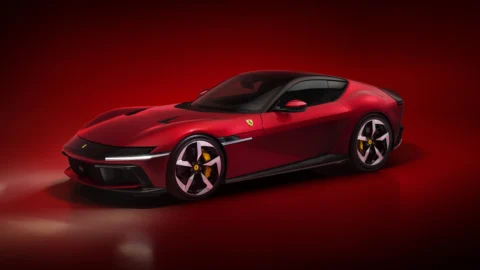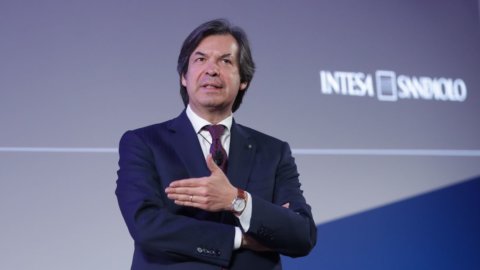Sales of electric cars in the second quarter of 2022 in general in Europe (EU + EFTA + UK), but not in Italy where instead there is a new contraction, according to data released by Acea, the association of European manufacturers
In general, there was an 11,3% increase in sales of electric cars to 322.144 units, with a market share of 9,9% compared to total registrations of cars and passenger vehicles.
Instead the sales of petrol car fell by 23% counting 1,106 million cars sold and the Diesel recorded an even more marked drop (-29,3%), settling at 440.823 units. The market share of petrol decreased by more than 3 percentage points, accounting for 38,5% of total sales, while the market share of diesel decreased to 17,3% of total passenger car registrations (from 20,2% of the same period in 2021).
Spain and France believe more in the electric vehicle market
In detail, they are Spain e France to drive the market for electric battery vehicles, recording double-digit gains: +22% for the former and +18,6% for the latter.
Instead, Italy recorded a decrease with -19,6% and Germany with -0,5%.
The vehicles plug-in hybrid electric cars (PHEV) expanded their market share during the period, despite a double-digit decline in units sold (-16,5% in Europe). With the exception of Spain (+11,3%), all key markets recorded a decline in PHEV sales: France (-17,4%), Germany (-16,9%) and Italy (-6,9. XNUMX%).
Vehicle sales hybrid electric (HEV) in Europe (EU+EFTA+UK) they decreased by 4,2%. However, due to the significant decline in sales of conventionally fueled cars, HEVs have expanded their overall market share (22,6%).
The four major markets in the region recorded mixed results. France and Spain growing (+7,2% and +2,7% respectively). Italy and Germany, on the other hand, recorded declines (-9,3% and -6,5% respectively). Despite a drop in the absolute number of units sold, hybrid cars reached 8,7% of the market compared to 8,4% in the same period of 2021.
The registrations of natural gas vehicles (NGV) they plunged 62,9%, mainly due to the decline in Italy, which accounts for the vast majority of sales in the region. Conversely, the vehicles powered by LPG recorded an increase in sales (+7,9%). Three of the four largest markets in the region recorded strong gains: Spain (+57,6%), France (+21,9%) and Germany (+10,3%). Italy, on the other hand, recorded a decline (-5,1%).
Given the strong development of luxury cars, preferably electric. McKinsey explains how
A McKinsey study says that between now and 2031 the global car market will be driven by luxury sector and within it will be the sector of battery electric vehicles (BEV) and gods electric vehicles (EV) to act as a driving force for the sector.
The American consultancy sees the market for cars with a value above $80.000 grow at a annual growth rate 8 to 14 percent between now and 2031. In contrast, the market for cars costing less than $80.000 is expected to remain virtually flat through 2031, growing about 1 percent annually. "The luxury car segment will drive the majority of market growth," the report said, noting that several automakers are poised to launch new luxury models on the market in the coming months.
In particular, McKinsey predicts that battery electric vehicles (BEVs) will be dominant in all levels of the luxury segment by 2031: globally, more than 70% of current owners of premium and luxury internal combustion engine vehicles (ICE ) is willing to switch to EVs during their next vehicle purchase. In particular, they will be i SUV likely to dominate the luxury EV market. Several major luxury car manufacturers including Aston Martin, Ferrari and Lotus, are busy introducing their SUVs to answer this consumer demand.
Chinese market focuses on electric and luxury cars
The return of the Chinese consumer is expected in this market segment, when the lockdown due to Covid ends. China will be the fastest growing market for luxury cars by 2031, with annual growth of 14%, thus increasing its global share in the segment from 24% in 2021 to around 35%, McKinsey said. Chinese auto buyers view luxury through a wider lens than their peers in major developed auto markets around the world.
Traditional elements such as finishes , quality remain powerful buying drivers, however Chinese buyers are also very interested in all theelectronic field, To tech, and in particular to digital interactions, connectivity and above all to the ADAS functionality (the system of sensors and internal cameras that monitors the driver's attention, intervening if necessary).
The other determining factor for the consumer in the electric car sector are the charging stations quick and theguaranteed autonomy from the batteries. Several electric vehicle operators in China are already working in this field, and one company has a battery with a range of 2022 kilometers ready for 1.000.
Most of the car brands in the luxury segment have seen theirs increase EBIT margins between 2016 and 2021, while margins for mass-market brands have stagnated at 8% over the same period. THE luxury electric vehicles they should share in this profitability, as we expect the luxury EV market to provide margins EBIT from 21 to 25% by 2031.





